Oceans
-
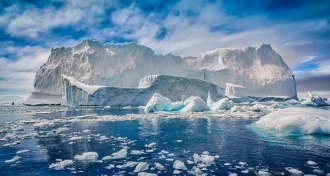 Climate
ClimateAntarctic sea ice shrinks to record low
The Antarctic sea ice extent has reached a new low just two years after hitting a record high.
-
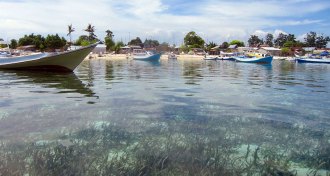 Ecosystems
EcosystemsSeagrasses boost ecosystem health by fighting bad bacteria
Seagrasses might reduce bacteria levels in ocean water.
-
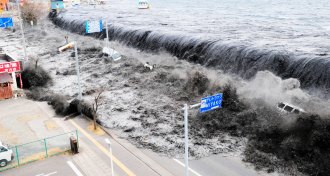 Physics
PhysicsSound waves could take a tsunami down a few notches
A tsunami’s ferocious force could be taken down a few notches with a pair of counter waves.
-
 Oceans
OceansFleeting dead zones can muck with seafloor life for decades
Low-oxygen conditions can fundamentally disrupt seafloor ecosystems and increase carbon burial, new research shows.
-
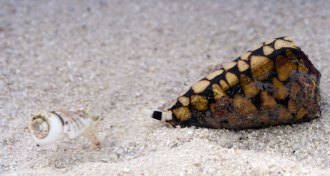 Oceans
OceansCone snails wander in circles, lose focus with boosted CO2
Deadly cone snails wander in circles and become less capable hunters when exposed to higher levels of carbon dioxide in seawater.
-
 Oceans
OceansCone snails wander in circles, lose focus with boosted CO2
Deadly cone snails wander in circles and become less capable hunters when exposed to higher levels of carbon dioxide in seawater.
-
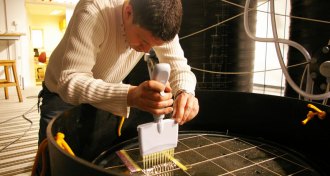 Oceans
OceansClimate change may boost toxic mercury levels in sea life
Increased runoff to the ocean due to climate change could raise neurotoxic mercury in coastal sea life by disrupting the base of the food web.
-
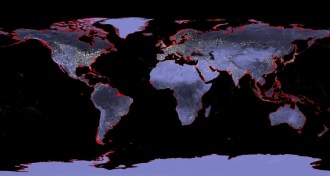 Climate
ClimateEarth’s last major warm period was as hot as today
Sea surface temperatures today are comparable to those around 125,000 years ago, a time when sea levels were 6 to 9 meters higher, new research suggests.
-
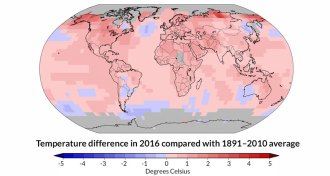 Climate
ClimateFor three years in a row, Earth breaks heat record
Spurred by climate change and heat from a strong El Niño, 2016 was the hottest year on record.
-
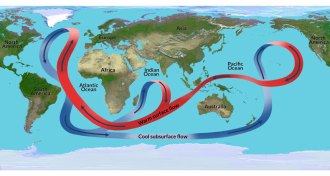 Climate
ClimateWarming could disrupt Atlantic Ocean current
The Atlantic current that keeps northwestern Europe warm may be less stable under future climate change than previously thought, revised simulations show.
-
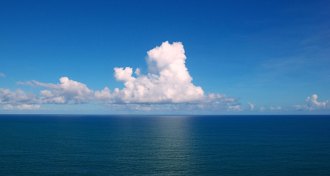 Earth
Earth‘Waterworld’ Earth preceded late rise of continents, scientist proposes
Cooling mantle temperatures may have lifted Earth’s continents above sea level, helping spur the Cambrian explosion.
-
 Oceans
OceansReaders contemplate corals and more
Coral engineering, ancient almanacs and more in reader feedback.